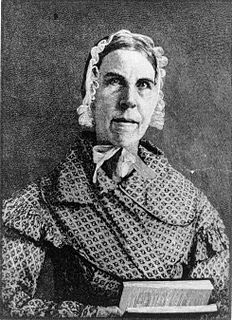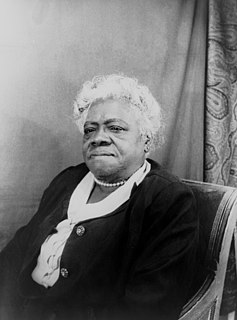A Quote by Stella Benson
Imagination seems to be a glory and a misery, a blessing and a curse. Adam, to his sorrow, lacked it. Eve, to her sorrow, possessed it. Had both been blessed - or cursed - with it, there would have been much keener competition for the apple.
Related Quotes
Behind joy and laughter there may be a temperament, coarse, hard and callous. But behind sorrow there is always sorrow. Pain, unlike pleasure, wears no mask. ... For this reason there is no truth comparable to sorrow. There are times when sorrow seems to me to be the only truth. Other things may be illusions of the eye or the appetite, made to blind the one and cloy the other, but out of sorrow have the worlds been built, and at the birth of a child or a star there is pain.
Had Adam tenderly reproved his wife, and endeavored to lead her to repentance instead of sharing in her guilt, I should be much more ready to accord to man that superiority which he claims; but as the facts stand disclosed by the sacred historian, it appears to me that to say the least, there was as much weakness exhibited by Adam as by Eve. They both fell from innocence, and consequently from happiness, but not from equality.
It is what is left to him," said Will. "Do you not recall what he says to Lucie? 'If it had been possible... that you could have returned the love of the man you see before yourself- flung away, wasted, drunken, poor creature of misure as you know him to be- he would have been conscious this day and hour, in spite of his happiness, that he would bring you misery, bring you to sorrow and repetance, blight you, disgrace you, pull you down with him
Boys and girls were both created with given attributes, and given the freedom to act and react. But Adam was allowed to name all the animals, and Eve was made from Adam's rib, as a companion for him. No wonder she ate the apple, she was rebelling against a world where everything was stacked against her. She was just a prop to make Adam happy.
But the morbidity of sorrow-not cultivated sorrow, but that which comes inevitably-is often a productive sluggishness, a time when the soul slows down, too weary to go on, and takes stock of where it's been and where it's going. During these gloomy pauses, we often discover parts of ourselves we never knew we possessed, talents that, properly activated, enrich our lives.
This was one of the greatest test of his faith he had ever experienced. The thought of deceiving the kind and faithful wife of his youth... was more than he felt able to bear.... his sorrow and misery were increased by the thought of my mother hearing it from some other source, which would no doubt separate them, and he shrank from the thought of such a thing, or of causing her any unhappiness.
So where does the name Adam's apple come from? Most people say that it is from the notion that this bump was caused by the forbidden fruit getting stuck in the throat of Adam in the Garden of Eden. There is a problem with this theory because some Hebrew scholars believe that the forbidden fruit was the pomegranate. The Koran claims that the forbidden fruit was a banana. So take your pick---Adam's apple, Adam's pomegranate, Adam's banana. Eve clearly chewed before swallowing.
Recently, one friend asked me, "How can I force myself to smile when I am filled with sorrow? It isn't natural." I told her she must be able to smile to her sorrow, because we are more than our sorrow. A human being is like a television set with millions of channels. If we turn the Buddha on, we are the Buddha. If we turn sorrow on then we are sorrow. If we turn a smile on, we really are the smile. We can not let just one channel dominate us. We have the seed of everything in us, and we have to seize the situation in our hand, to recover our own sovereignty.






































